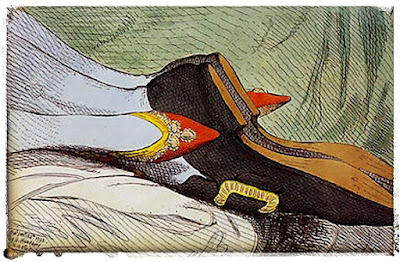I love
words. I love the way words are put together as language. Words are our history
and when Big Brother – the PC set – remove words from the dictionary or make
them unacceptable I feel they are removing some of our heritage. Words need to
be taken in the context of the time that they were used and also how they were
used.
So let’s
talk about shagging, the old in-out as it is called in A Clockwork Orange.
Shagging or fucking, bonking, screwing, rogering, as it’s sometimes called, has a wonderful history in our language. So let’s not hide from our wonderful wordy heritage and instead celebrate these words and not ignore them. Of course, like all words, they need to be taken in context and
referenced to the time they were used. But looking at the language of coitus,
sexual intercourse or lovemaking, as some call it, it seems that many of the
origins of a lot of these terms are lost in the history of their own time; as I'm sure that many of our own 'distasteful' words will be in a few hundred years from now.
Over the
last 600 years rumpy-pumpy has been called many things. Some of them funny,
some of them naughty and some just plain unfathomable in their obscurity. All
language has its place and I find it hard to see any of it as ‘foul
language’; although who knows how risqué it was at the time and to the people of
that time?
Back in the
mid-1300’s (if you were lucky) you might have ‘given someone a green gown’,
what a lovely thought. Later in 1500 you might have tried some ‘nug-a-nug’ or
had fun playing ‘the pyrdewy’ or ‘couch quail’ and by the end of the 1500’s you
may have even been ‘riding below the crupper’ - I particularly like the
earthiness of that one.
In the early
1600’s you could ‘board a land carrack’, have taken part in a little ‘fadoodling’,
‘put the devil into hell’, had a bit of ‘primcum-prancum’ (I wonder if that’s
where hanky-panky came from), played a little ‘night physic’, taken part in a
‘culbaltizing exercise’, ‘joined paunches’, ‘danced the Paphian jig’, had a
round of ‘tray trip of a die’, ‘danced with Barnaby’ or even been ‘shot twixt wind
and water’ - which conjures up just a few distressing images for me.
By the mid
1600’s you would be enjoying some ‘rantum-scantum’, ‘blowing off the
groundsills,’ playing ‘hey gammer cook’, ‘joining giblets’ (which doesn’t sound
like much fun at all), having a round of ‘rumpscuttle and clapperdepoch’,
‘lerricompooping’, and interestingly ‘riding a dragon upon St George’.
By 1700 you
would be having a ‘houghmagandy’ or might even ‘pogue the hone’. You could
even, rather picturesquely, ‘make feet for children’s stockings’ whilst
‘dancing the kipples’.
In the
1800’s you could ‘have one’s corn ground’ or take ‘horizontal refreshment’ and,
according to the very poetic Victorians of 1886, ‘arrive at the end of a
sentimental journey’.
By 1910
this sentimental journey had become a little more raunchy as one was ‘getting
one’s ashes hauled’, and after that most of the phrases we still use today
began to be used to describe ‘placing Percy in the pasture’.
Wonderful,
descriptive, magical and whimsical language. How I love it and I wonder what
those people of long ago would make of us today with our fear of ‘getting caught’
using incorrect or outlawed words that they commonly used. I wonder if they
would be shocked by the way we rewrite classic literature to make it more
acceptable, frown when honest opinions are spoken in honest language, can’t use
some words that aren’t offensive at all like black, or dark, Paddy, queer, or
chink or any word that might be seen as describing any racial, sexual or religious
grouping. What are the words that will be crossed off the list of ‘acceptable’
language next and will we still have this wealth of wonderful language in the
future?
Well, it’s
no use asking me because in this rantum-scantum world I don’t give a flying fadoodle.

No comments:
Post a Comment